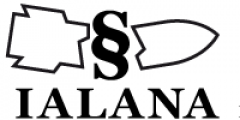25 February 2022
The International Association of Lawyers Against Nuclear Arms (IALANA) strongly condemns Russia’s attack on Ukraine. The Russian invasion is in clear violation of international law, and is causing the people of Ukraine to experience terror, suffering, and death. Given the increased risk of nuclear weapons use, whether intentionally or by miscalculation, it also exposes the peoples of the region and the world as a whole to harm on a vast scale.
I. Russia’s invasion of Ukraine is an illegal war of aggression.
- The invasion is a violation of the United Nations Charter, Article 2(4), which prohibits the “threat or use of force against the territorial integrity or political independence of any state.” It cannot be justified as an act of self-defense under Article 51 of the Charter. Nor do any of the rationales offered by Putin withstand even minimal scrutiny. Thus there is no basis for claiming that the invasion will prevent “genocide.”
- The invasion constitutes an act of aggression under general international law. The Rome Statute of the International Criminal Court defines a state act of aggression as “the use of armed force by a state against the sovereignty, territorial integrity or political independence of another state, or in any other manner inconsistent with the Charter of the United Nations.” The leaders of an aggressor state may be individually responsible for the crime of aggression, one of the core crimes set out in the Rome Statute. Under the Charter of the International Military Tribunal (Nuremberg Charter), waging a war of aggression is a crime against peace, and leaders of the Third Reich were convicted of that crime.
II. Putin’s thinly veiled references to resort to nuclear weapons should other states intervene militarily are unlawful threats of force under the UN Charter, Article 2(4), because they are an element of the unlawful invasion. They are also contrary to general international law because they threaten the commission of an illegal act—here the use of nuclear weapons.
In its 1996 Advisory Opinion (para. 78), the International Court of Justice stated that if use of a weapon would not meet the requirements of international humanitarian law governing the conduct of warfare, the threat of such use would be contrary to that law. It is now widely recognized that use of nuclear weapons is illegal under humanitarian law, most centrally because they cannot meet the requirement of discrimination between military targets and civilian persons/infrastructure. More than 25 years ago, the Court found such use, or threatened use, to be illegal. The main circumstance in which the Court could not reach a conclusion, when the survival of a state is at stake, is not at issue for Russia in the present crisis.
In a 5 January 2022 joint statement, Russia and the other four nuclear weapon states acknowledged by the Non-Proliferation Treaty affirmed the Reagan-Gorbachev principle “that a nuclear war cannot be won and must never be fought.” Putin’s recent references to possible Russian use of nuclear arms cannot be reconciled with that affirmation.
III. Several US and NATO actions in relation to Russia since the mid-1990s, in particular opening the door to Ukraine’s membership in NATO in 2008, were unwise and even reckless in their disregard of the security concerns of Russia. That in no way, legally or morally, serves to justify Russia’s war of aggression against Ukraine.
IV. In the months preceding the invasion, the United Nations and states involved in the crisis failed to achieve a purpose of the UN set out in Article 1(1) of the Charter, “to bring about by peaceful means, and in conformity with the principles of justice and international law, … settlement of international disputes … which might lead to a breach of the peace.” It is now the duty of those states to bring about a cease-fire, and to resolve differences in accordance with Article 2(3) of the Charter, which requires member states to settle “international disputes by peaceful means in such a manner that international peace and security, and justice, are not endangered.” It is also the responsibility of the UN Security Council to restore international peace and security. Should the Security Council not be able to act due to the veto afforded Russia as a permanent member of the Council, the General Assembly should act, as it has numerous times over the decades, under the Uniting for Peace resolution (377A, 3 November 1950).
IALANA stands against Russia’s unlawful acts of war and threats of nuclear force. We call for both sides to comply with international humanitarian law, respect human rights, and provide access to humanitarian aid. We further call for an immediate cease-fire, dialogue and diplomacy, and fulfilment of the requirements of the UN Charter.
Phon van den Biesen and Takeya Sasaki
Co-Presidents of IALANA
